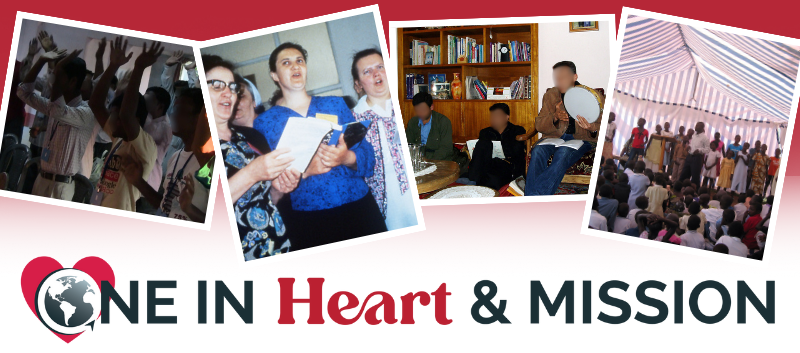Key to secular hearts: authenticity and relevance
- May 7, 2019
- 3 min read
Updated: Aug 25, 2023
Equipping Christian Leaders Feature Article: Spring 2019
How do you equip and multiply Christian leaders in a place where few people are Christians, where the majority are self-described scientific atheists, where to be a Christian is to be considered somewhat abnormal? You do it by rebuilding trust around authentic Christians and Christianity. Jerry and Marilyn Farnik have been meeting Czechs on their ground, establishing lasting relationships, patiently living out and demonstrating the relevance of Christianity to everyday Czech life, for three decades.

The Czech Republic (at that time combined with Slovakia) was one of eight countries controlled by the Soviet Union during the post-WWII communist era. People in neighboring countries managed to cling to various religious faiths even under communism. Poles remained steadfastly Catholic and many Romanians adhered to the Orthodox Church. Many Czechs, on the other hand, laid aside their Christian heritage which includes forerunners to the Reformation like Jan Hus. Almost without exception, Czechs accepted the scientific atheism they were taught from pre-school through university.
Today, almost 30 years after the fall of communism, most Czechs continue to reject Christianity.
“Religious surveys reveal that the Czech nation ranks among the lowest of European nations in church attendance, prayer and belief in the existence of God,” the Farniks report. “Czechs tend to be materialistic and not believe in life after death. Czechs who were raised in this anti-Christian environment tend to pass on their values to their children and grandchildren. Some do not want their children to hear about God at all. They want their children to be considered ‘normal’ and being a Christian causes a person to stand out in this society.”
In fact, of over 10 million people in the Czech Republic, less than 20,000 are evangelical believers. Which is why Jerry and Marilyn focus much of their attention on church planting. Culturally-sensitive evangelism coupled with gathering believers into loving fellowship are precisely what Czechs are hungry for. In most cases, they just don’t know it yet.
“One of the difficulties in presenting the gospel here,” the Farniks say, “is that people are not familiar with the Bible and are sometimes resistant to examining biblical Christianity. They have many misconceptions about God and what it means to be a Christian. One short presentation of the gospel is rarely enough for a person to comprehend how to become a Christian. Over several weeks, we will discuss who God is, creation, man’s fall into sin, why Christ came to earth, and the significance of his death and resurrection in securing salvation for all who believe in him.”
Not only do Czechs need a lot of time to hear, think about and absorb the gospel, they are also highly relational. Friendships are deep and lasting in this culture, and people tend to be more influenced by personal conversations than by mass communication.
“Our most significant opportunities have taken place through personal conversations and Bible studies when it was possible to explain the gospel thoroughly and answer questions,” the Farniks say. “Most people who have attended [our church] meetings and events have come in response to a personal invitation. Mass distribution of invitations has not been too effective. Czechs value relationships. When they trust you and your intentions, they are often more willing to come to an event. Czechs also appreciate honesty, so we try to be consistently upfront about the nature of the events we sponsor.
“Generally, we have tried to sow the seed of God’s word everywhere we can and have often found the ground to be quite hard, but we maintain confidence in the power of the gospel and God’s work of grace in those he calls to himself.”

Jerry and Marilyn and their church hold events and activities for people of all ages and interests, always keeping the word of God central. Even English lessons provide opportunities to present a Christian worldview as they discuss various issues and world events.
For those who are Christians, the Farniks facilitate Entrust training courses aimed at helping church leaders and lay people develop and refine leadership skills.
In addition, they address a very practical need in Czech society by offering an annual biblical counseling conference, bringing in top teachers to equip Christians who want to serve as counselors. Divorce, alcoholism and suicide rates are very high, meaning the need for well-prepared Christian counselors is massive. As counselors are equipped, more practical biblical solutions can be offered to those who are facing personal, marital and family issues.
Yes, Czech soil is hard soil. The Farniks’ loving, patient, consistent, honest, relevant and long-term working of that soil is producing distinctly Czech fruit.




Comments